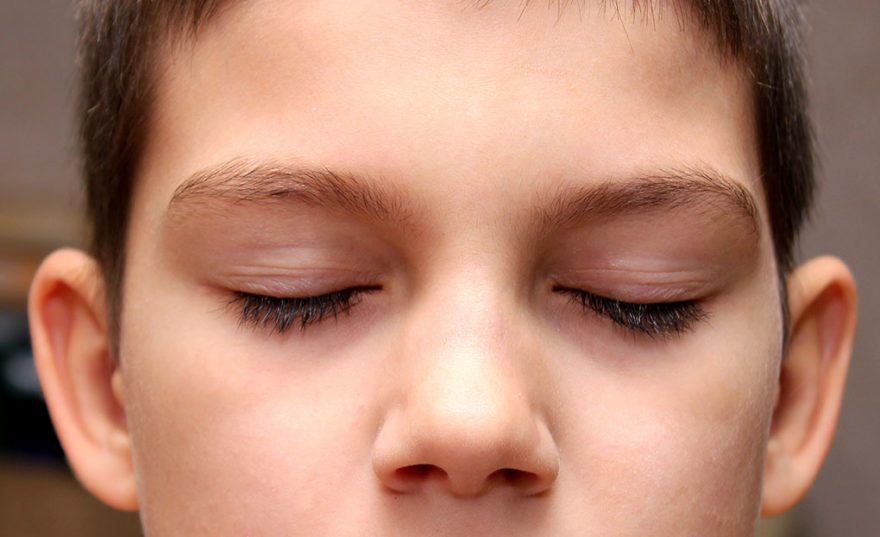Mindfulness describes a natural mental state in which an individual’s attention is directed towards the present moment, with an attitude of accepting one’s feelings, thoughts, sensations and the surrounding environment, non judgementally, just as it is. High levels of mindfulness practice have been associated with better functioning for various psychological and physical health outcomes;1 so, augmenting mindfulness practice via mindfulness-based interventions (MBIs) has been hypothesized to have downstream effects on more distal outcomes such as improved behaviour or reduced symptoms of psychopathology.2
In 2019, Darren Dunning and colleagues compiled a Research Review for the Journal of Child Psychology and Psychiatry in which they evaluated, for the first time, the efficacy of MBIs on cognition and mental health in adolescents <18 years-of-age. They conducted a meta-analysis of 33 randomized controlled trials (RCTs) that together included >3,600 children, and found that across all RCTs, there was a significant positive effect of MBIs compared to control on the following outcome categories: Mindfulness, Executive Functioning, Attention, Depression, Anxiety/Stress and Negative Behaviours. Of note, however, only small-to-moderate effect sizes were found (Cohen’s d: 0.16-0.30) across these categories. When considering only the RCTs that included an active control group (n=17), the significant benefits were restricted to outcomes of Mindfulness, Depression and Anxiety/Stress. This finding suggests that studies with passive control groups may wrongly inflate the effects of an MBI on some outcome domains.
The researchers conclude that while the superiority of MBIs over active comparison conditions for these outcomes is reassuring, more work is needed to directly compare MBIs with psychological and psychosocial interventions that aim to reduce mental health problems or improve wellbeing. Overall, Dunning et al. advocate the use of MBIs to improve mental health in young people but reinforce that further RCTs are needed to evaluate the robustness of MBIs in youths, with a focus on the mechanisms of action.
Dunning, D.L., Griffiths, K., Kuyken, W., Crane, C., Foulkes, L., Parker, J. and Dalggleish, T. (2019), Research Review: The effects of mindfulness-based interventions on cognition and mental health in children and adolescents — a meta-analysis of randomized controlled trials. J. Child Psychol. Psychiatr. 60: 244-258. doi: 10.1111/jcpp.12980
Further reading
1Baer, B. et al. (2006), Using self-report assessment methods to explore facets of mindfulness. Assessment. 13:27-45. doi: 10.1177/1073191105283504.
2Khoury, B. et al. (2013). Mindfulness based therapy: A comprehensive meta-analysis. Clin. Psychol. Rev. 33, 763–771. doi: 10.1016/j.cpr.2013.05.005
Glossary
Mindfulness-based interventions (MBIs): MBIs aim to train individuals to cultivate and incorporate mindfulness into daily life. Education is provided in formal and informal mindfulness meditation practices that train the attentional control component and the non-judgemental attitudinal aspects of mindfulness. Formal practices include sitting meditation, mindful movements and mindful explorations of bodily sensations (known as the “body scan”). Informal practices aim to integrate mindfulness into everyday activities. Classes are held in a group setting, but daily home practice is also required.
